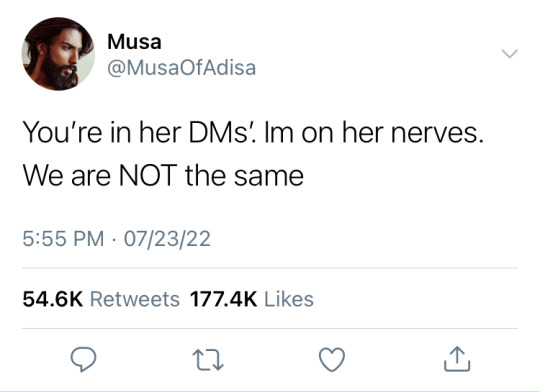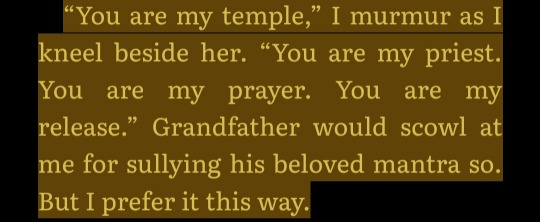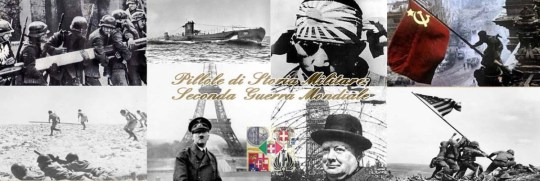#Elaia
Text
When Elias Veturius changed his grandfather's mantra to one of his own for Laia, and when Kell Maresh used the antari commands to teach them to Lila but also make love to her, and when Julian Blackthorn used the very parabatai vows' that forbid love to defy them and express his love physically to Emma and when Cardan Greenbriar kind of begged Jude to lie to him when he always dreamed of that coming from her? That's EVERYTHING to me 🤌🏼
#elaia#elias veturius#laia of serra#kellila#kell maresh#delilah bard#blackstairs#julian blackthorn#emma carstairs#jurdan#cardan greenbriar#jude duarte#an ember in the ashes#a torch against the night#aeita#sabaa tahir#a darker shade of magic#a conjuring of light#adsom#acol#v. e. schwab#queen of air and darkness#the dark artifices#cassandra clare#the wicked king#the cruel prince#the folk of the air#tfota#holly black#ships
41 notes
·
View notes
Text

Laia × Elias Civilian Life
#dress up games#an ember in the ashes#laia of serra#elias veturius#ember quartet#elias x laia#elaia#sabaa tahir
8 notes
·
View notes
Text
What is the best ship dynamic and why is it the powerful brown girl x the submissive (usually white) boy she has absolutely wrapped around her finger
99 notes
·
View notes
Text




PSYCOLOGISTS HATE THEM ! headers
[ altaircapella, torydarius, pipravi, elaia ]
• 𝗹𝗶𝗸𝗲 𝗼𝗿 𝗿𝗲𝗯𝗹𝗼𝗴 𝗶𝗳 𝘆𝗼𝘂 𝘂𝘀𝗲 𝗶𝘁
#twitter packs#twitter headers#headers#altaircapella#sethcaleb#zodiac academy#torydarius#tory vega#darius acrux#seth capella#caleb altair#pipravi#pippa fitz amobi#ravi singh#a good girls guide to murder#elaia#laia of serra#elias veturius#an ember in the ashes
92 notes
·
View notes
Text




#an ember in the ashes#a torch against the night#a reaper at the gates#a sky beyond the storm#laia of serra#elias veturius#elaia#Elias x Laia#sabaa tahir#emberling#ember quartet#Helene aquilla#musa of adisa#Afya ara Nur
85 notes
·
View notes
Text

✩🦁📜Bookish Merch:
My Laia of Serra plushie from @faecrate arrived and I am absolutely in love!! The “An Ember in the Ashes” quartet will forever be one of my favorite series of all time, so I was excited to be able to purchase a plushie with Laia’s fierce likeness during one of faecrate’s many past items sales. I’ll definitely need her at my side for emotional support when I read Sabaa Tahir's newest project upon its release because her books always manage to rip my heart out.
Cross-posted to: Instagram | Amazon | Goodreads | StoryGraph
#an ember in the ashes#a torch against the night#a reaper at the gates#a sky beyond the storm#sabaa tahir#laia of serra#elias veturius#elias x laia#elaia#ya dystopia#enemies to lovers#forbidden love#love triangle#ya fantasy#multiple povs#slow burn#ya romance#book merch#booklr#book blogger#book blog#bookish#ya recs#ya books#ya literature
7 notes
·
View notes
Text
Modern Elaia <33








.
.
.
.
I still can't believe this series is over. I would sell my sold to reread this series again and experience this story.
#an ember in the ashes#a torch against the night#a reaper at the gates#a sky beyond the storm#elias veturius#laia of serra#elaia
38 notes
·
View notes
Text
I catch my reflection. I appear as I did just a few months ago, on the eve of my graduation. Same body. Same face. Only the eyes are different. I look into the pale gaze of the woman in front of me. For a moment, I see Helene Aquilla. The girl who hoped. The girl who thought the world was fair.
But Helene Aquilla is broken. Unmade. Helene Aquilla is dead.
The woman in the mirror is not Helene Aquilla. She is the Blood Shrike. The Blood Shrike is not lonely, for the Empire is her mother and her father, her lover and her best friend. She needs nothing else. She needs no one else.
She stands apart.
#an ember in the ashes#a torch against the night#a reaper at the gates#a sky beyond the storm#aeita#helene aquilla#helvitas#laia#elias#elaias#elaia
40 notes
·
View notes
Text
I read the An Ember in the Ashes series like a week ago and loved it. Loved it so much that I couldn’t even bring myself to fangirl over it because the journey it brought me on with all of its themes, life lessons, and wisdom were so surprisingly profound to me. The books became sacred to me.
Anyway, I finished The Bridge Kingdom a couple days ago and just finished The Folk of the Air books. I’m usually really not an enemies to lovers kind of gal. But ever since reading AEIA, the whole theme of love and hate being two sides of the same coin has given me such a deeper appreciation for these kinds of relationships and the intensity of such emotions [when written well, of course].
Anyway, much love for these stories <3
#books#ya books#an ember in the ashes#AEIA#the bridge kingdom#the folk of the air#enemies to lovers#forbidden romance#sabaa tahir#danielle l jensen#holly black#elaia#lara x aren#jurdan#booklover#bookworm
14 notes
·
View notes
Note
So many interesting WIPs!!!! 👀👀👀 I try not to go for anything too obvious Kanej so Fic#4 Wagon life maybe? Or Disaster? Thank you!!
What if i told you they were both Kanej? ;) except they aren't, Fic #4 - Wagon Life is an exploration of a line in the second Ember in the Ashes book, approx half finished and available on AO3.
Actual title: A Lantern in the Dark; and here's a lil taste:
My mind wanders over the memories made, his hands on my body, mine on his. The way I’d felt beneath his ministrations. The boldness I definitely didn’t feel now as the gray light of early morning fills the wagon that had led me to put the women’s advice into practice.
Reality sinks in too fast for my liking, reminding me of the future - Elias gone, my brother gone, my people gone, everything and everyone I love, ripped away.
“Don’t,” Elias murmurs, sensing my thoughts. “Whatever you’re thinking about, don’t. Be here, with me, now.” He opens his mouth and closes it against my neck, his tongue touching my skin.
“I don’t want you to go,” I say, tears pricking at my eyes.
“I’m here, Laia.” His lips move across my shoulder. “I’m right here.” He lays his head back down, shifting himself closer to me, somehow. “No matter what, I’ll always be here with you.”
--
Disaster is a Kanej songfic, inspired by a discord member, where Kaz did not pull his shit together in time for Inej.
Oh disaster come, wipe away, so we can start again
They kept meeting like this. They couldn’t seem to stop.
She had waited for Kaz for what seemed like forever, and then forever had run out. She had met her husband Arjun, with his kind heart and kind eyes, warm brown hands that held her reverently even when she had another nightmare. Hands that welcomed her eagerly when she returned from yet another long voyage. She had accepted the burden of motherhood with him once, and he had taken on the role of a father with eagerness. He made their home into a safe haven, where both she and their child could grow and be safe.
So why did she still find herself stealing through Ketterdam’s streets when she was docked there, looking for coffee brown eyes and pale hands covered with leather?
--
Elaia fans, i promise I'll finish this fic! Kanej stole my entire heart, but it still means a lot to me and i hope you enjoy it.
@anonniemousefics INEJ'S HUSBAND IS A VERY NICE MAN AND YOU ARE NOT ALLOWED TO MURDER HIM.
#ask games#ask me things#wip tag game#elaia#elias veturius#laia of serra#an ember in the ashes#a torch against the night#kanej#kaz brekker#inej ghafa
6 notes
·
View notes
Text
Elias definitely has my heart 😭🤍

#readersofinstagram#elias veturius#elaia#sabaa tahir#reading#books#fantasy books#currently reading#novel#bookstagram#bookshelves#lovers#heartache#parting gift
1 note
·
View note
Text

Elias x Laia ✨️
(https://picrew.me/ja/image_maker/1417820)
7 notes
·
View notes
Text
Scorching Sonder
I fall in love with people in passing
hands that do not seek to touch me
simple grins in passing
sometimes a longing, lonesome stare
I love you
Beautiful stranger
I love that I will never see you again
and you will live a happy little life inside of my memory
just as you were in passing,
you will live until my own
1 note
·
View note
Text
Pillole di Seconda Guerra Mondiale: 8 novembre
Pillole di Seconda Guerra Mondiale: 8 novembre
1940 – Fronte greco. Viene data l’ordine di interromper l’offensiva italiana in Epiro. La battaglia di battaglia di Elaia–Kalamas iniziata il 2 novembre precedente si chiude con il successo difensivo greco.Per difficoltà di comunicazioni, l’ordine di ritirata non giunge a tutti i reparti, ne farà le spese la divisione alpina Julia ch riuscirà a ripassare il ponte di Perati solo dopo aver subito…

View On WordPress
#8 novembre 1940#8 novembre 1941#8 novembre 1942#8 novembre 1943#8 novembre 1944#Battaglia di Elaia–Kalamas#Comando Superiore Truppe Albania#Isola di Walcheren#Sebastiano Visconti Prasca#second world war#Seconda guerra mondiale#ww2
0 notes
Note
So…I followed your advice in researching Greek Myths and learning them via the Authors. And uhm…I was curious because something bugged me.
Now I’m bad at history, but as far as I knew, Laurel Wreaths were mostly common in Rome, rather than Greece? (I could be wrong) so I had like a nagging feeling. And found out that the Daphne and Apollo myth (And probably also Hyacinthus I’m looking into that) was told in Ovid’s Metamorphosis? I could be wrong, so far I’ve only seen Ovid as the original author.
Sorry- I saw your post about Arachne and thought about what other myths were originally purely Roman then were mistaken for Greek Myths and wanted to add this into a possibility-
A LOT of stuff were invented by Ovid! Myself I learned only a month ago that Morpheus was "invented" by Ovid and I was like... wow. (There were dream-gods in Greek mythology, but they were not singularized, and the persona of Morpheus as the individual god of dreams was invented by Ovid)
Now, I don't know much about the specific use of laurel in Ancient Greece vs the Roman empire, but if you ask about the origin of the story of Daphne and Apollo, they are definitively Greek and Ovid did not invent her (though he told the story in a very, very different way).
The story of Daphne's numerous misadventures was recorded by Greek authors - and while it was quite late records, which would make us wonder if it isn't a late development or invention, they all rely on older sources attesting a presence of Daphne's legend for quite a long time. The two major records of Daphne's legend by Greeks are Pausanias' Description of Greece (2nd century CE), and Parthenius of Nicea's "Erotica Pathemata" (1st century BCE). BUT Pausanias explains that the legend he collects has been known for a very long time in the area around the Ladon river, to the point of implementing itself within the worship of Apollo, while Parthenius begins his story by pointing out he is merely retranscribing the text of older sources - a book from a 3rd century BCE historian named Phylarkhos, and an elegiac poem by Diodoros of Elaia. But given these two older texts were lost, we only have the latest record, hence this feeling of "novelty" when the story is actually at least around since the 3rd century BCE...
In fact, the existence of Daphne in Greek mythology long before Ovid's Metamorphoses is also proven by how massively different the Greek records of Daphne's life are from Ovid's tale. Everybody knows the story of Daphne through Ovid, since it was the most popular and widespread one... But both Pausanias and Parthenius report the same legend, which is very different from Ovid's rewrite.
In Ovid's tale, Daphne is said to have been Apollo's first love, and that the god's feelings were caused by Cupid as a way to take revenge after being mocked (Apollo, as a talented archer-god, mocked Cupid's own archery talents). Cupid shot a love-killing arrow in Daphne's heart so that the nymph would reject all forms of love, and she became "like Diana" - by refusing any form of marriage or romance, and fleeing the company of men and rejecting all her suitors, preferring the loneliness of the woods and the pleasure of the hunt - her father, the river-god, insisted on her giving him a son-in-law and grandchildren but she insisted she wanted to remain endlessly virgin like Diana. Meanwhile Apollo had received a love-inflamming arrow, one that not only caused a deep desire and mad love within the god for Daphne, but also made this attraction stronger and more obsessive each time the god saw the nymph. As such, Apollo tried all he could to please her and woo her and seduce her, but each time he tried the love-repelling spell on Daphne caused her to flee in fear and disgust and terror ; and the more she fled, the more Apollo found her beautiful and desirable, thanks to Cupid's curse ; and thus he followed her, but the more he pursued and insisted the more she fled. Their respective love and hate kept growing and growing until Daphne, exhausted and not wanting to flee anymore, stopped by the shore of her father the river-god and begged him to transform her so that her beauty would be gone, and she would not be loved anymore. Her father turned her into a laurel-tree, but it was no use, as Cupid's power as too strong: Apollo was still in love with the beauty and radiance of the tree, and he could feel Daphne's heart beating in the plant; and similarly Daphne's hate still lived on, as when Apollo embraced the tree and kissed its branches, the tree shivered and was repelled away from the god's body. But Apollo ultimately decided that if she could not be his bride, he would make Daphne his official tree and symbol - and to this, Daphne actually agreed as she offered her "leafy branches" to the god.
That's the Roman story of Daphne invented by Ovid. What is the difference with the Greek story he took inspiration from? (Because it is very clear that Ovid's source was the story twice told by Pausanias and Parthenius ; and told by others before whose name were lost...
1: In Ovid's story, Daphne simply admires and imitates Diana's behavior. In the Greek legend Daphne was ACTUALLY one of the huntresses of Artemis. Or to be more precise Parthenius explains that Artemis found Daphne "dear" to her because she shared the goddess' life-choices, refusing to live in cities, not hanging out with other girls, hunting in the mountains with a large pack of hounds... And Artemis loved Daphne so much she offered her a gift: she would always shoot straight at her target and never miss.
2: There's no Cupid/Eros in the Greek legend. Daphne is not Apollo's first love, she is not cursed with rejecting all love, he was not cursed to love her to insanity - this whole episode was invented by Ovid. Apollo is still in love with Daphne in the Greek legend, but it is just a regular love.
3: The Greek legend has a character that Ovid completely erased. Leucippus. Leucippus was another man who was in love with Daphne but knew that she was a lonely huntress closely linked to Artemis... Understanding he could not seduce her in a conventional way, Leucippus put up a convoluted plan to win the girl's heart. He dressed himself as a woman and created for himself a female persona. He approached Daphne and pretended to be a fellow huntress ; Daphne agreed to let her join her hunting party, and she soon grew to admire this bold, strong woman so unlike the other girls of Greece and whose strength and hunting talents far surpassed those of a common maiden... In fact she grew such affection and admiration for the fake-huntress that Daphne developed a dear and solid friendship with her: it was said she was always by Leucippus' side, refused to let Leucippus away from her, and kept embracing him/her and clinging to his/her body. However, since Apollo was also in love with Daphne he grew both jealous and angry (since, as the god of truth, he knew of Leucippus' deceit), and decided to reveal the truth. He implanted in Daphne's mind the idea that she had to bathe in a given stream: she went there with her "attendant maidens" and female servants/fellow huntresses (Daphne is never said explicitely to be part of the huntresses of Artemis, but she herself lives in a group of "wild women" very similar to Artemis' huntresses so... it is strongly implied she is one of them, especially since she literaly lives like the goddess and has been gifted by her). Leucippus of course refused to bathe, despite the other girls' insistence, and since he refused still, they tore his clothes away from him... discovering he was a man all along. And since this group of women act on a Artemis' huntress logic, they did what seemed the most reasonable thing to do... kill Leucippus by plunging in his body all of their spears.
4: The Greek legend does agree that Daphne begged a third-party god to turn her into the laurel tree to escape Apollo's love-hunt, but the details are different from Ovid's tale and the story is more lacking in explanations... All we know, from Parthenius' record is that Apollo appeared to Daphne right after Leucippus was killed. Why? We don't know, but he clearly came to profit off the fact his romantic rival had been killed in shame/crime, and that he had a part to play in the "reveal" of Leucippus' deceit... But all we know is that Daphne fled Apollo, and he pursued her, and to avoid being caught by him she begged to be hidden from his sight, and thus she was turned into a laurel tree. But in the Greek legend she doesn't beg her father the river-god... she begs Zeus, and he is the one who grants her request and protects her from his own son.
Things are even worse in Pausanias' record, since he stops after Leucippus death and there is no story of Apollo hunting down Daphne in any way... He doesn't even speak of any metamorphosis ; and yet he does mention that Daphne was associated with the laurel, and that the heavy use of laurel in Apollonian rituals and games was because of the god's love for Daphne. (But from yet other sources contemporary to Pausanias' writings, such as the "Life of Apollonius of Tyana", we know that the story of Daphne being somehow "replaced" by a laurel-tree was well-known, though it wasn't always said why such a thing happened)
In conclusion, as usual with how Ovid tweaks the Greek legends, it is interesting to see how he shift the character and what the character is supposed to be about. Thanks to Ovid the image we keep of Daphne is the one of a victim fleeing in fright and fear, and her relationship with Apollo is depicted as a frightening and cruel tragedy orchestrated by Cupid... And yet, we do know that Daphne started out as a badass huntress of Artemis, and that her original story was about a man changing his gender in hope of winning her heart - to the point the involvment of Apollo was seen as a side-detail that could be omitted (Pausanias even claims that Apollo's involvment in the legend was an addition by the priests of the god, and not present in the main folktale)
Mind you I am not at all an expert on Daphne's character or story - and I am sure others are more informed than me... But that's the few things I know
22 notes
·
View notes
Text
okay here's a small summary of the lands in my OC setting that i wrote ages ago:
The southern continent, Illyria, is known for its vast desert, massive mountain range, and oasis villages. One of this regions main exports is black sand, a type of spice that can only be grown within Illyria. Black sand is mostly grown in / around the village of Elaia, which long ago sprouted around an oasis.
Thracia is a small land between Illyria and Paros. It blends elements of both cultures and this has unique gods and religion. It is mostly reading towns located here... Many have moved to the region in an attempt to strike it big.
The Central continent, Paros, has a bustling merchant culture which is aided by it's rather flat terrain. Southern Paros has a port city (Psamathe) known for it's gentle weather and an ancient temple that sits by the coast.
North of Paros is Emathia, a colder, somewhat hilly region with an ancient history. Known for it's elborate style of architecture and massive library.
The region of Chione was once considered part of Lapta, but was absorbed into Emathia during the reign of King Solomon. Nowadays it is an independent territory. It's capital is a fishing village.
Continuing northwards is Lapta, a frigid, mysterious region where few outsiders venture. Some think that Solomon, the first king of Emathia, originated from this region despite the fact that bronze-age Lapta and Emathia were enemies with one another.
11 notes
·
View notes